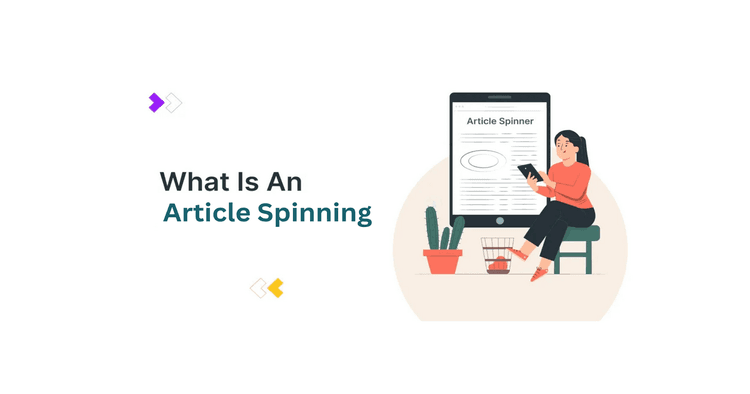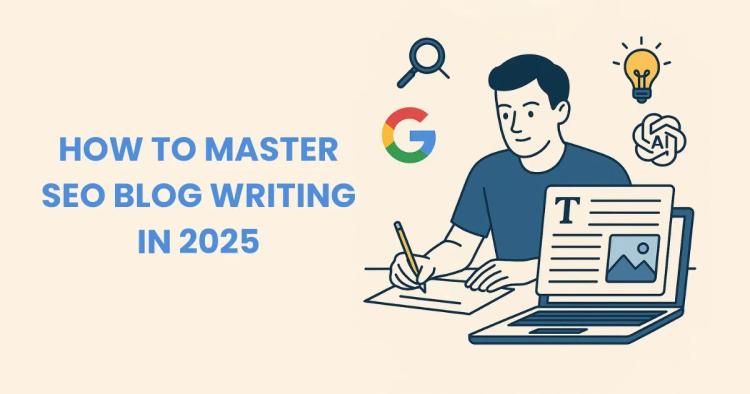Plagiarized content may seem like an easy shortcut to quickly generate a large amount of material for your website. But you must have thought to yourself: does plagiarized website content affect SEO? The short answer is yes!
Especially when it comes to SEO performance, plagiarized content can lower your search rankings. Google prioritizes original and high-quality content. Valuable content that engages users, solves their problems and most importantly matches their search intent will rank high.
Plagiarized content is the opposite of that. They are low quality which means you could get a SEO penalty. In extreme cases there can be legal consequences too.
5 Ways Plagiarized Website Content Impacts Your SEO Performance
Does Google penalize plagiarism? Yes. Here are 5 different ways plagiarized content can affect your SEO performance.
1. Lower Search Rankings
The biggest problem you will deal with is low SERP rankings. Google prioritizes high value and unique content. If it detects plagiarized material, its algorithm will devalue your site and rank it lower when users search.
Over 60% traffic comes from Google. They are the largest referrer of website traffic by a huge margin.
So, if the search giant ranks your site lower than your competitors, it can significantly harm your visibility and performance. Your organic traffic will take a huge hit if you are not ranking high on search engine SERPs.
2. You Will Not Get Backlinks
Plagiarized content can cause you to lose on getting backlinks. If Google deprioritizes your content, it will not rank your website. Which means, others will not find you either, and will not link to you either.
Backlinks are links to your web pages from other web pages. They are one of the 8 most important Google ranking factors.
3. Enforcing DMCA Takedowns
Using plagiarized content on your website opens you up to legal troubles. This is one of the important reasons to use a plagiarism checker to double check for any copied content.
The original creator can request a DMCA takedown to Google, or the host of your website.
If the request is approved, Google will remove your website from search results and could de-index it altogether. If you keep on plagiarising, Google might deem your domain untrustworthy.
That is not the end of it. Repeated offense can lead to legal action from the original creator.
4. Lowers Your Domain Authority
Your domain authority (DA) is one of your biggest assets when it comes to ranking on Google. High domain authority is a signal to Google about how credible your site is. Plagiarizing content lowers your DA which causes you to rank lower.
This will reduce your visibility and will also cause you to lose out on backlinks, visibility and more. Low domain authority is a long-term crutch. The more high quality content you create, the higher your content will rank – increasing your DA over time as well.
Additionally, you will also get backlinks with high quality content as well. Which means, plagiarizing content eventually hurts you in many ways.
5. Poor Content Quality (Leading to High Bounce Rate)
Plagiarized content is poor quality which fails to keep the user engaged. Users probably will not even finish reading the article and leave the page. This is a negative sign for Google, called bounce rate.
When Google sees readers do not stay on your site long, it understands that the page does not have good quality content. As a result, it will rank you lower.
Besides, plagiarized and low quality content also undermines your website’s authority too. You will never be able to establish your brand as an authority in the industry. This will have long term SEO impacts.
6. Deindexing Page
Serious forms of plagiarism on your website might also cause your page to get deindexed by Google. Your website will not even show up on the SERP anymore. Thus, leading to a massive hit on traffic.
If you do not show up on SERP’s, it is almost the same as not even existing on the internet. Deindexing is one of the harshest search engine penalties you can get. Google will only deindex your page only for serious offenses, though. That too after manually reviewing.
7. Damage To Your Brand
Lastly, plagiarizing hurts your brand and reputation. Regaining the trust of your visitors and Google will be an uphill battle - one you can completely avoid by publishing high quality and original content.
Loyalty and brand precipitation is crucial in order to stand out in today’s digital works built on authenticity and relationships.
Read our guide on how to write seo blog posts for driving more organic traffic to your website.
Difference Between Plagiarized And Duplicate Content
Plagiarized content is stolen content from other websites without proper attribution. Whereas, duplicate content is content appearing in multiple places on the web or even on your website.
Copied content and duplicate content are often confused to be the same thing. Additionally, plagiarising content is illegal, whereas duplicate content does not have any legal implications, only search engine penalties.
Duplicate content does not have any legal implications unlike plagiarized content. However, it still harms your SEO performance. It can confuse search engines. If Google does not know which one is the original, it will not rank any of the pages with duplicate content.
Original content are valuable in both websites and social media. Use social media scheduling tools to post your original content consistently and get rewarded by algorithms.
Can You Reuse Your Own Content?
The thing to look out for is the same content in different URLs. This is a telltale sign for Google that your content is duplicate. However, there are some instances where you can have some duplicate content on your website.
When you are writing a blog, you might need to mention things covered on another blog of yours. If the piece of information is explicitly providing value for the current blog too, it will not be treated as duplicate content.
The problem is when you have large amounts of duplicated content or duplicated pages. You can also add canonical tags on your pages to prevent duplicate content issues.
Focus On Quality Over Quantity (This What Google Wants)
-
At the end of the day Google wants to rank high-quality content. That is what you should aim for too. High quality content engages users and provides value. Therefore you will get more backlinks, and your visitors will stay on your site longer making it rank higher.
-
Google has over 200 ranking factors. If you ensure your content is top-notch and original, you will automatically cover many ranking factors. This is why avoiding plagiarism is a no brainer.
-
Alway perform plagiarism checks before publishing to make sure your work is original. CopyChecker detects plagiarism more accurately. You can access this free plagiarism scanner online from on any device.






